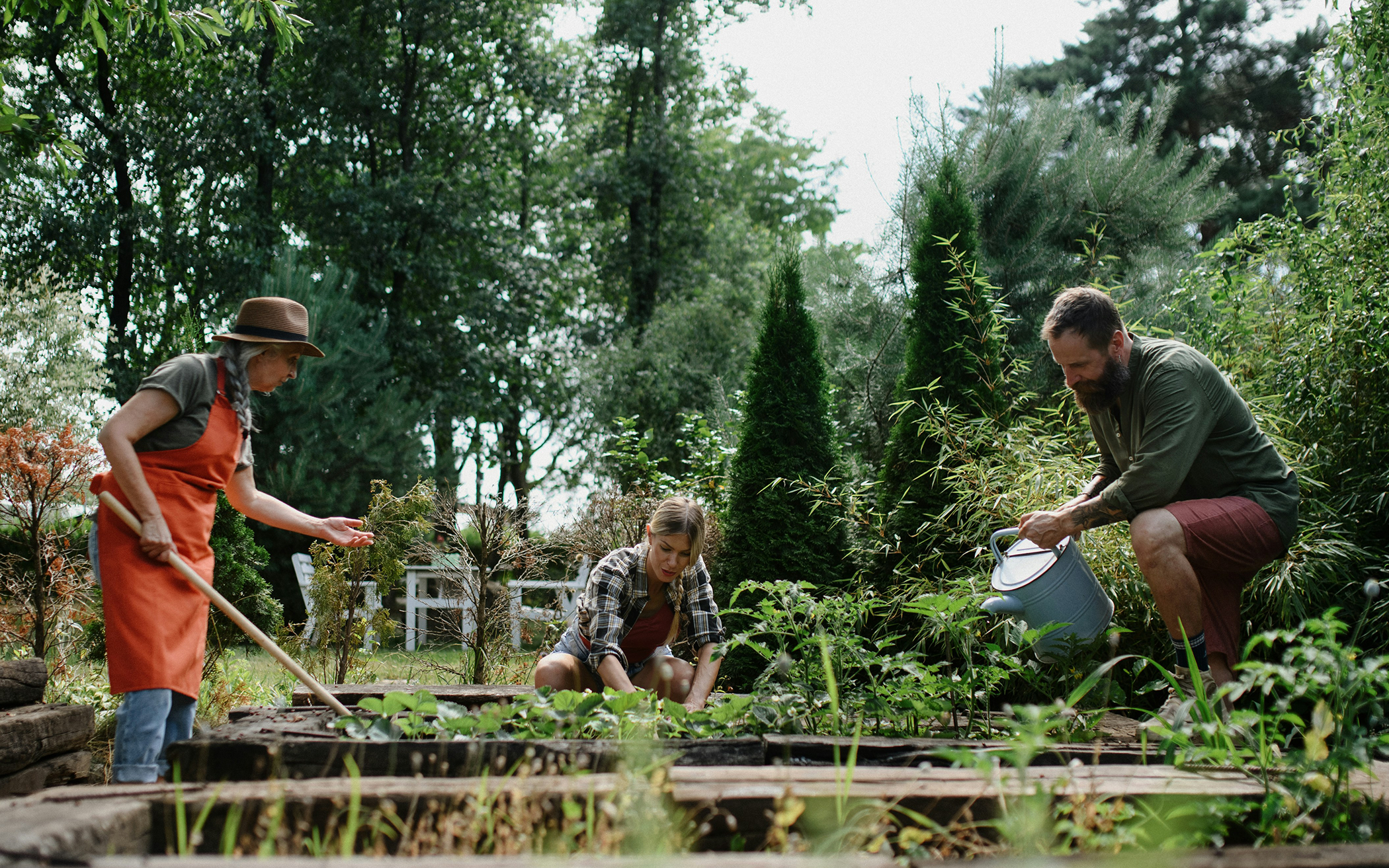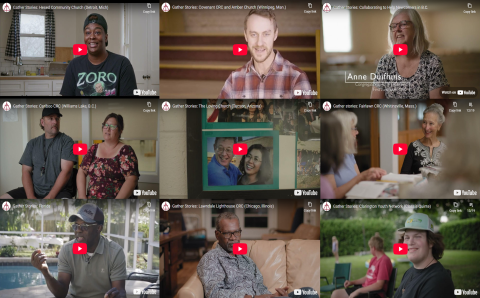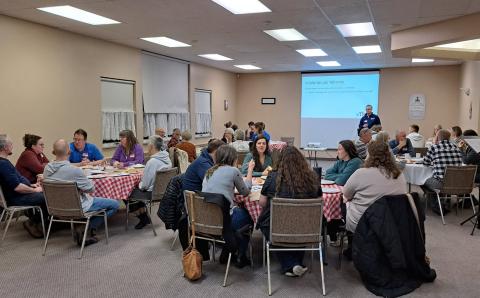I was invited to speak to a community college class about spiritual warfare and mentioned the importance of getting a medical evaluation to determine a person’s mental health. After my talk, a student came forward and said, “Pastor, I love your church. I am a nurse in a mental health facility, and you have occasionally sent people to us who are in need of care. I am so impressed with the community your church provides to folks struggling with mental illness. A loving, supportive community is what our patients most need, and that’s what you offer. Even though I don’t personally believe in God, I often tell the people we release to consider your church, knowing that they will find a helpful community there. It’s like your church is healing our city one person at a time.”
“Healing the city one person at a time” became a catchphrase for our church. It expresses our longing to be used by God to bring about healing in the lives of the people around us.
In our often broadly distributed and dominantly online culture, it is easy to forget the call to be a parish church—to minister in, with, and throughout our neighborhoods. Neighbors who are hidden behind screens or who would not think to darken the doors of a church building are still folks we are called to serve. And it takes a community to love and serve a parish—a community that loves God and loves its neighbor.
A gentleman approached me to suggest that we open our church building to unhoused folks, particularly on the occasional freezing nights we experience here in the desert. It made sense. We have a sanctuary full of comfortable couches, a wonderful kitchen, and other amenities folks might need. I told him it was a great idea and invited him to get to work on making it happen, reminding him there would need to be folks who opened and closed and who kept watch through the night. He was a bit confused and said, “Oh, I don’t want to do it. I just think it is something we should do.” I asked him who he thought “we” were.
Therein lies the problem, of course. We can fall into the trap of believing the church is its leadership staff. We easily miss the reality that we are the church. All of us. I had a sign above my desk that read, “The church is not here for you. You are the church, and you are here for the world.” It daily reminded me of my call.
Pushback comes quickly, of course. I’m not gifted. I have to work that day. I don’t feel called. I’m really busy. It is easy to come up with reasons to not be involved.
Sitting at home watching a worship service on a screen can feel like participating in the church community, but it isn’t. Certainly, for some, it is the only way they can be a part of the church at all, and that is a huge blessing. When I was hospitalized, it was a joy to join my community for worship. But it is not the same as being there in person.
Community is messy. Interacting with people can be exhausting and difficult. Social anxiety and struggles with self-worth can convince us to withdraw. But the call to collectively serve the parish remains.
The beautiful thing that Scripture reminds us of is that we are all an integral part of a body and that we all bring to it our unique gifts and talents. Each of us has a role to play in maintaining the health of the body and in serving the parish. There are many ways to find your place in the community:
- Take a spiritual gifts assessment and ask friends and church leaders where you fit in. Often we are unaware of what we have to offer. Those who experience us regularly are invaluable in helping us discern our role.
- Try something new. Experiment by offering to help with things you have never tried before. Take excellence off the table. No one is good at something the first time they try, but try anyway.
- Open your eyes to see opportunities to serve. The Holy Spirit is always putting people in front of you who need what you have to offer. Notice them.
- Respond to your church’s list of needs. Ask God if these are some ways you might serve. At my church we pass around a sign-up sheet at each service. At the top of the page we list all the tasks that need to be done each week—nursery help, cooking the post-service meal, cleaning the building, teaching in children’s ministries, washing dishes, and so forth—and down the side are the dates. Every member is expected to sign up for five or six slots over a five-month period. If for whatever reason a member can’t fulfill any of these tasks, they are invited to meet with the elders to determine what they might be able to do. It shares the burden broadly and is a very effective way to involve everyone in the ministry.
- Look for ways to serve in the community doing the things you enjoy. Do you like to fish? Invite neighbor kids to go fishing. Are you a gamer? Use it as an opportunity to meet new people. Do you enjoy cooking? Invite some widows over for dinner. Do what you love to do with others.
- Be a good neighbor. Take out the neighbor’s trash cans. Be aware of the elderly and what their particular needs might be. Always buy a candy bar when neighbor kids come selling.
- Do little things. Sometimes we think we only have an impact when we do big things. I’ve developed the habit of thanking people for doing what they do. Recently at the grocery store I noticed there was only one checkout line with quite a few people waiting. When I was finally in front of the clerk she apologized for the long line and told me everyone had called in sick. I said, “Wow! Thank you for coming in today. It must be very difficult. Thank you for what you do.” She burst into tears and came around the counter to give me a hug. “That’s the nicest thing anyone has said to me in a month.” Sometimes little things are the biggest things.
People might struggle with being in a church. There are requirements and expectations that we don’t always fully understand or believe. We deal with social anxiety and with relationships that make us uncomfortable. We might have physical difficulties that make attendance difficult. When those things are combined with the false belief that we have nothing to offer, it’s easy to just turn to a screen and watch a Sunday livestream. But you are a valuable member of the body. No one can do what you do or be who you are. You are needed so that we can go and make disciples in our parish. Whether you are called to lead a program to help those who need a place to sleep when it’s cold, wash dishes after a community meal, or sit in a corner and pray, your presence is greatly valued by the One who created you and gave you all you have. Come, offer yourself! In doing so you will find joy.
Discussion Questions:
- What are some ways your local church is serving or helping its particular neighborhood community?
- “The church is not here for you.” Discuss how prevalent the attitude is that “church is here for me.” How can we change that?
- “You are the church, and you are here for the world.” How prevalent do you think this idea is among churchgoers? How might we make it more prominent?
- How have you been a good neighbor to your local community? What specific acts have you done, or will you do?
About the Author
Rod Hugen is a retired co-founder of the Village Church in Tucson, Ariz., and disciples and mentors young pastors and leaders on behalf of Classis Arizona. He is author of Parallels: a Lenten Devotional.









